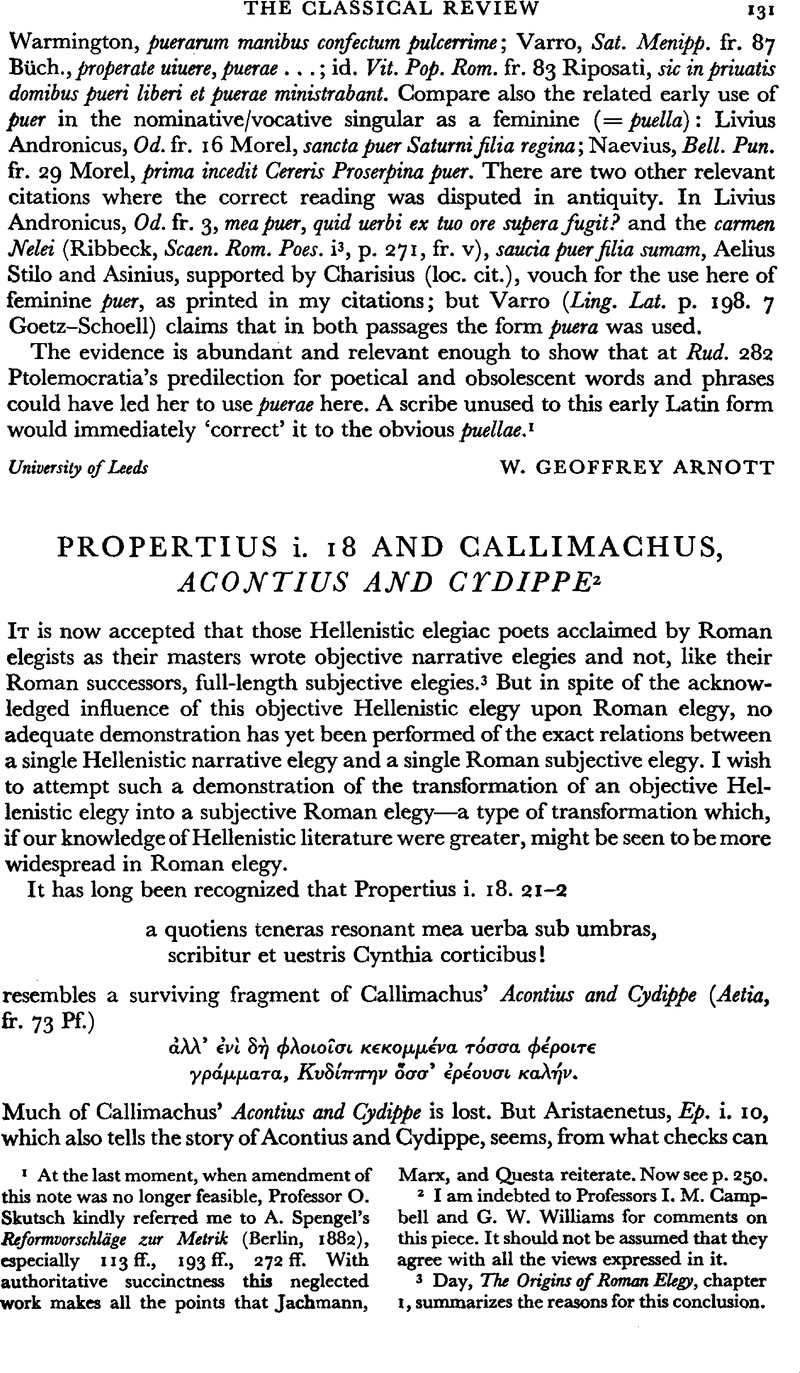Article contents
Propertius i. 18 and Callimachus, Acontius and Cydippe2
Published online by Cambridge University Press: 27 February 2009
Abstract

- Type
- Review Article
- Information
- Copyright
- Copyright © The Classical Association 1969
References
page 131 note 3 Day, The Origins of Roman Elegy, chapter I, summarizes the reasons for this conclusion.
page 132 note 1 See Pfeiffer, ad locc.
page 132 note 2 Since writing this piece, I have noticed an adumbration of some of its contents in Jacoby, , Kleine Schriften ii, pp. 81 f.Google Scholar But Jacoby (p. 82 n. 47) declined to illustrate and demonstrate his position and it has not been observed by editors of Propertius.
page 133 note 1 For further arguments against Enk's reading see Smythe, , C.Q. xliii (1949), PP. 121 f.Google Scholar
page 134 note 1 The author of [Ovid] Her. 20 also gives a legal turn to his Acontius-Cydippe poem. Cf. also Smythe (loc. cit.) for legal material in Propertius i. 8.
- 3
- Cited by


